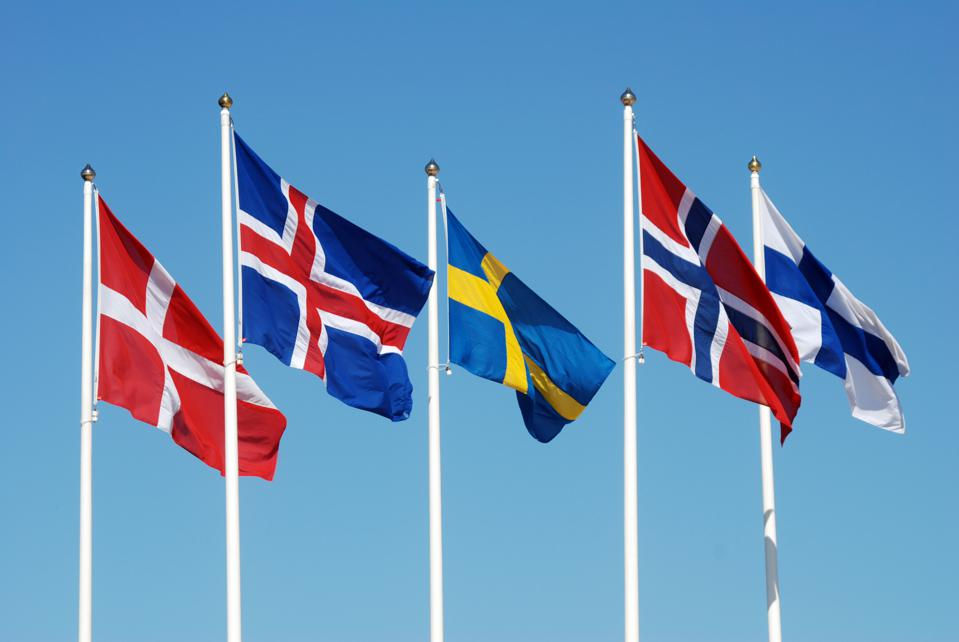The Peculiar Myth of Nordic Socialism
- Charles Bromley-Davenport
- Jun 15, 2021
- 3 min read
Updated: Aug 3, 2021
Credit must go to the Institute of Economic Affairs for inspiring this article

Worshiped as the patron saint of 21st century socialism, the Nordic economies have been hijacked by those on the radical left as cover for the persistent and somewhat inconvenient failing of their ideology throughout history. While replacing Mao and Mugabe for Sven and Sebjørn has been successful in indoctrinating millennials on Twitter, through closer analysis it would appear that the Nordic economies aren’t socialist at all – and in many respects - more capitalist than our own.
Perhaps the most virulent myth of the Scandinavian economic model is the success of their nationalised industries in establishing a remarkably high standard of living. While there is no question about the success of the Nordic countries in this metric – consistently being found at the top of global happiness levels and life expectancy to name just a few – it is fictitious to claim that central control is the reason for this. Canadian based think tank the ‘Fraser Institute’ each year rank nations in terms of their economic freedom, or more simply, the level of free-market capitalism within an economy. Through the left’s estimations it would be expected that the Nordic countries appear far down the list – whereas in reality the complete opposite is the case. In the most recent study, Nordic countries ranked as some of the most free economies in the world, with Denmark peaking in 12th (higher than the United Kingdom), and Sweden ranking significantly higher than some of the most market-orientated nations - including South Korea.[1] Scandinavian governments themselves in recent years have attempted to dispel the myth that their economies are built upon socialism, evident by the Prime Minister of Denmark in 2015 expounding to a lecture hall at Harvard:
“I know that some people in the US associate the Nordic model with some sort of socialism. Therefore I would like to make one thing clear. Denmark is far from a socialist planned economy. Denmark is a market economy”[2]
While we can be critical of such fallacious claims, an argument that can be proposed with a degree of merit is the generous welfare state within Scandinavia. Such proponents likely point to how in Sweden there is a top tax rate of 57.1%– comparable to 45% in the UK. These statistics however are inconclusive in proving that the Nordic countries are socialist, indeed confirmed by how one of most pro-capitalist nations in the world, Japan, has a top income tax rate of 56%.[3] In similar regards, supporters of ‘Nordic Socialism’ often levy this point as the single premise behind their argument of why Western nations should tax top earners to a greater degree – yet also fail to mention how (until very recently) none of these countries had an enforced minimum wage. If the Nordic model is truly a matrix all countries should embrace, what would Jeremy Corbyn have to say about adopting this feature as well? Advocates also fail to mention how Scandinavian countries display signs of great wealth and egalitarianism pre-dating their welfare state, and can be found as early as 1890, as well as a general absence of high-earning industries (such as media and banking) that larger countries are reliant on.[4]
An additional myth propelled by the radical left is the notion that the Scandinavian model of education is evident of their socialist dream being realised. This myth was suggested by Labour’s very own former leader Jeremy Corbyn, quoting the success of education within the Nordic countries as proof that centralised control is the only method of delivering high standards of living. In reality however, the Nordic provision of education is akin to a system proposed by the poster boy of latter 20th century liberalism, Milton Friedman, and definitely not that of Marx or Engels. Sweden has a methodology of compete school choice, whereby the government provides households with vouchers that are to be used in exchange for sending their children to regular public schools, government-run charter schools, or private schools. This is an idea first proposed by Friedman in 1955, and in no way resembles a socialist economy.
While the cliché excuse for the failed centralised experiments of the 20th century was that ‘it wasn’t real socialism’, the radical left have now resorted to justifying their ideology with countries that aren’t even socialist at all. Despite only the future being the great arbitrator of how destructive this myth has been, we must all strive to question the validity behind this popular misconception before we next cast our ballot.
Bibliography
[1] https://www.forbes.com/sites/jeffreydorfman/2018/07/08/sorry-bernie-bros-but-nordic-countries-are-not-socialist/?sh=20627cc474ad [2] https://www.thelocal.dk/20151101/danish-pm-in-us-denmark-is-not-socialist/ [3] https://www.weforum.org/agenda/2019/11/income-tax-around-the-world [4] More information can be found in listening to ‘The Myth of Scandinavian Socialism’, which can be found at: https://www.youtube.com/watch?v=MerkGUx-2V4
Comments